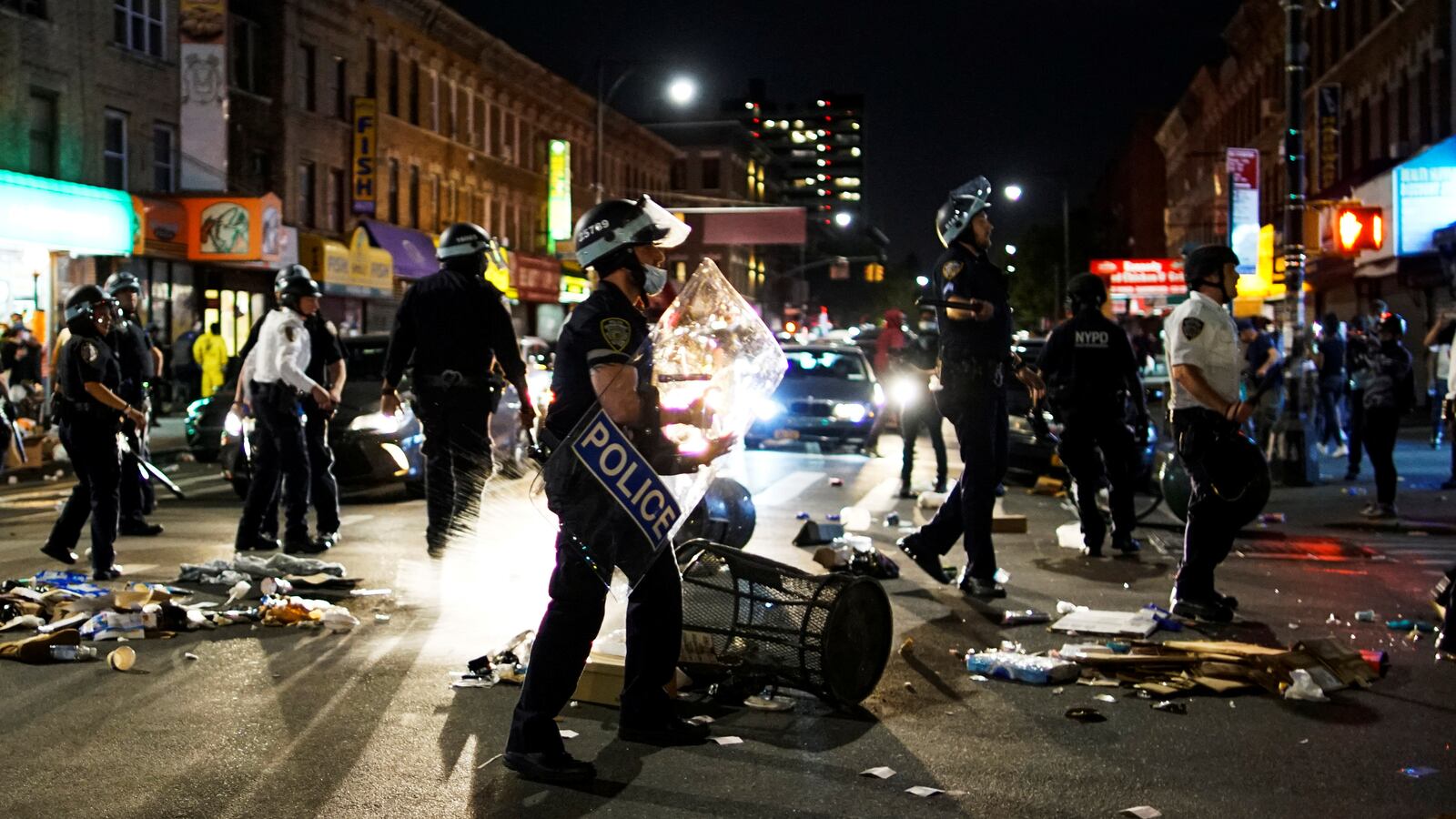New York City’s police department has agreed to a legal settlement aimed at mitigating conflict with and intimidation of peaceful protesters, a landmark resolution in the wake of the 2020 racial justice protests that is expected to see the department eradicate several controversial tactics used on demonstrators.
The settlement was reached after state Attorney General Letitia James and several civil liberties groups, including the New York Civil Liberties Union and the Legal Aid Society, sued the department.
“Too often peaceful protesters have been met with force that has harmed innocent New Yorkers simply trying to exercise their rights,” James said in a statement. “Today’s agreement will meaningfully change how the NYPD engages with and responds to public demonstrations in New York City.”
In a tweet thread announcing the “first-of-its-kind” agreement, the NYCLU reminded users that police officers had “brutally pepper sprayed demonstrators, struck them with batons, hit pedestrians with bicycles, and trapped protesters in closed spaces in a move known as kettling.”
The “historic” settlement, the NYCLU said, will mean that the police department will implement new protocols to “keep cops out of most [protests]” in favor of a “proportional” response that protects New Yorkers’ right to assemble and demonstrate.
According to a 42-page agreement filed Tuesday, the NYPD will instead use a four-tiered response system to demonstrations that minimizes police presence and emphasizes deescalation. Under the system, officers trained in deescalation will be the first line of defense deployed to protests, with specialty crowd-control units like the Strategic Response Group being held back until “tier three” conditions are met.
Most arrests will require authorization from a commander, and officers will only be allowed to fully break up protests and disperse demonstrators as a last resort.
A number of city police tactics will also be banned, including the use of helicopters and “kettling,” which involves encircling protesters indiscriminately.
Kettling was at the heart of a separate legal case involving roughly 300 protesters who were violently corralled and hit with batons and pepper sprays during 2020 protests in the Bronx. In March, the city agreed to pay $21,500 to each of the affected New Yorkers. (Four months later, the city agreed on a $13.7 million payout to thousands of people beaten during the 2020 protests in a separate class action lawsuit.)
The department will also hire a senior executive to oversee compliance with the new system and its response to all public protests in the future. It will also be monitored by a “collaborative review committee” staffed by, among others, the commissioner of the Department of Investigation, members of James’ office, the NYCLU, and the Legal Aid Society.
“As the protests in 2020 showed, the NYPD can’t and won’t police itself,” the NYCLU said. “Now when it comes to protest, our new settlement no longer leaves it up to them.”
Notably, the proposed changes are still subject to approval by a federal judge, according to the Associated Press, and face significant opposition, including from the city’s municipal police union, which did not sign off on the settlement. Should a judge approve the agreement, it will take years to fully put into practice.
But advocates for reform celebrated the victory on Tuesday regardless.
“This is huge,” Donna Lieberman, the NYCLU’s executive director, told The New York Times. She explained that the settlement represents “a major overhaul” of a core tenet of the department—its protest response. “Instead of deploying a massive command-and-control response, the N.Y.P.D. will be required to employ a graduated response.”





